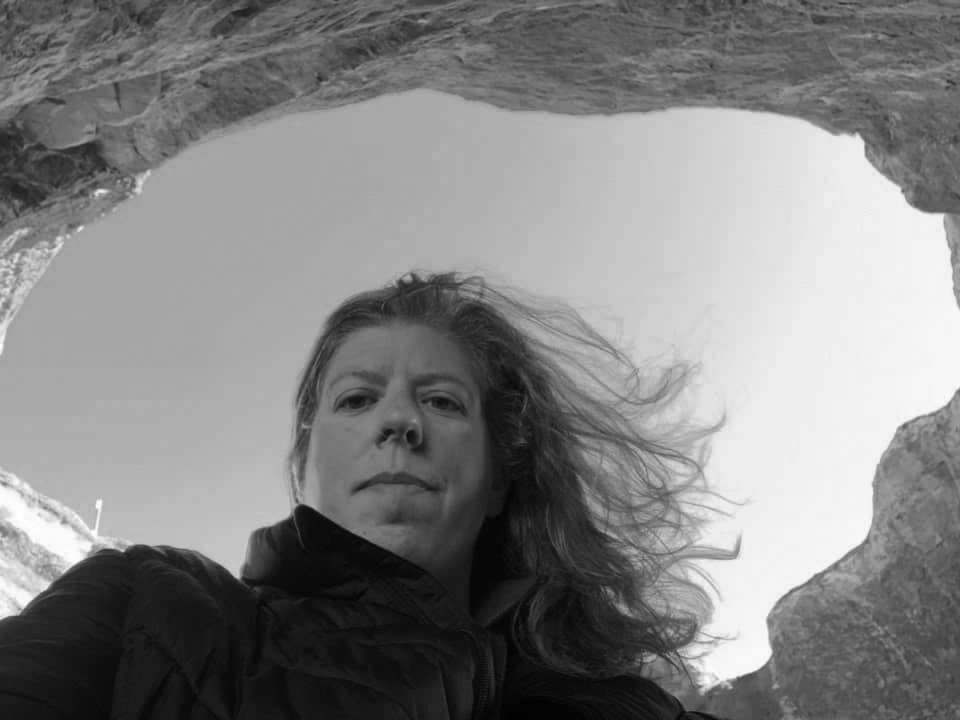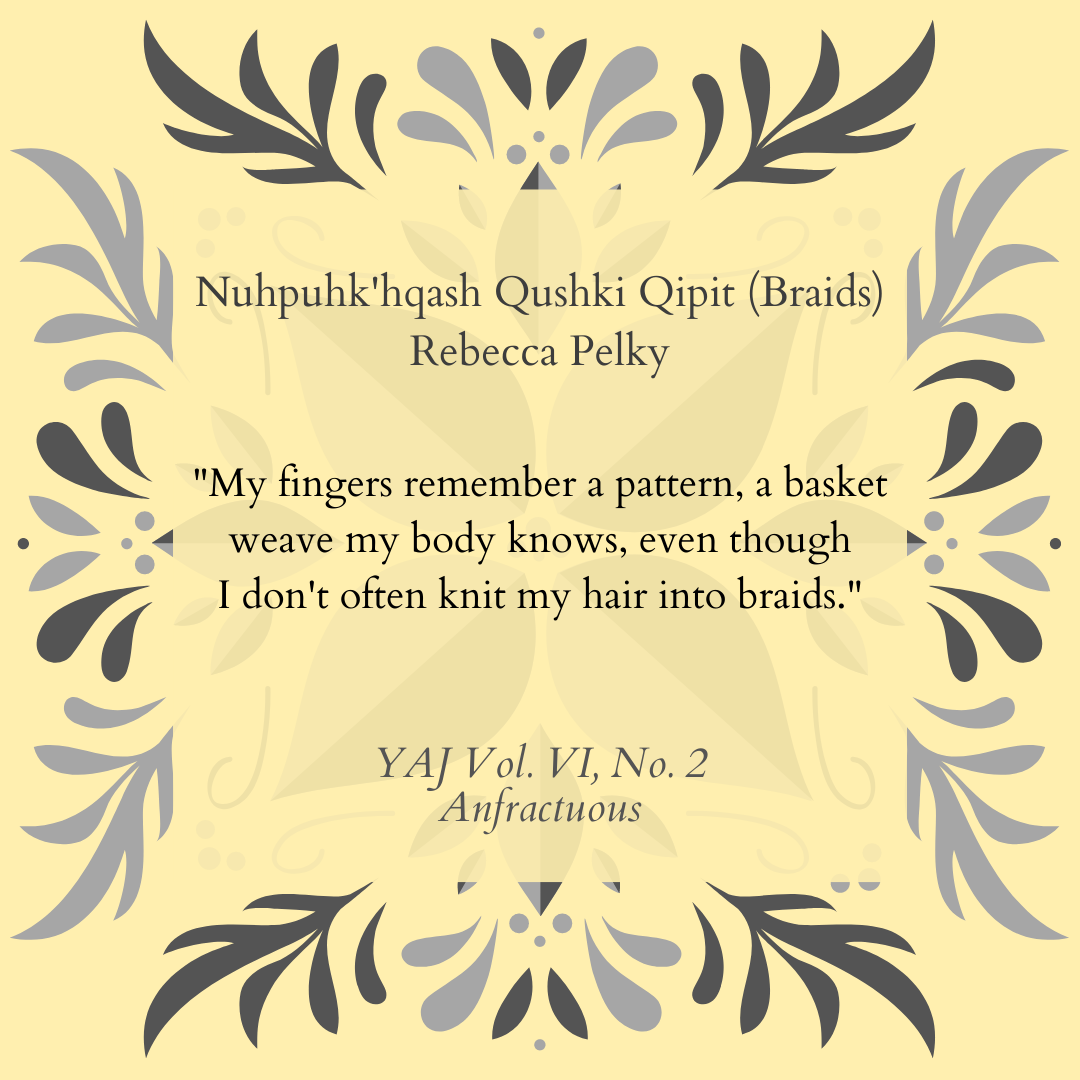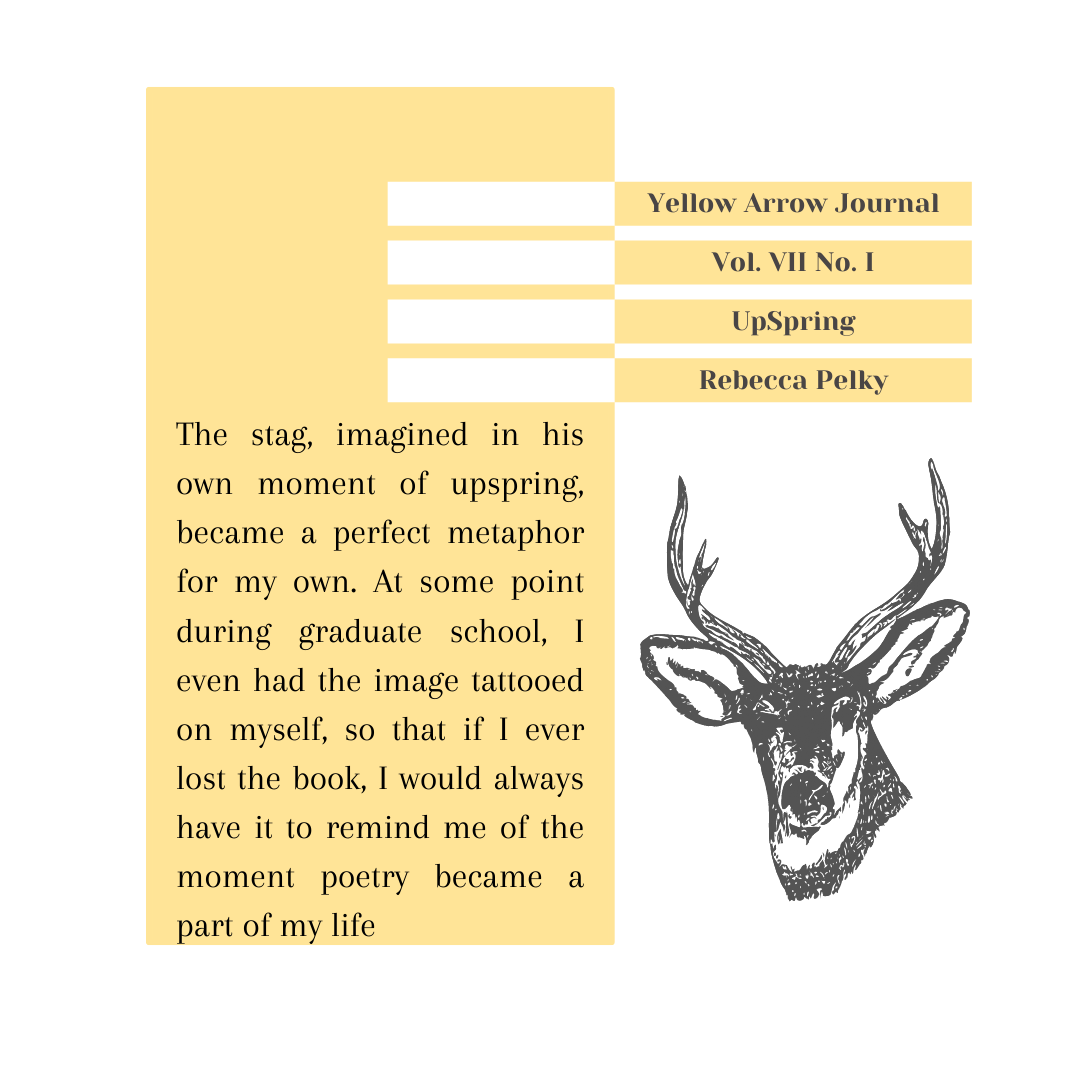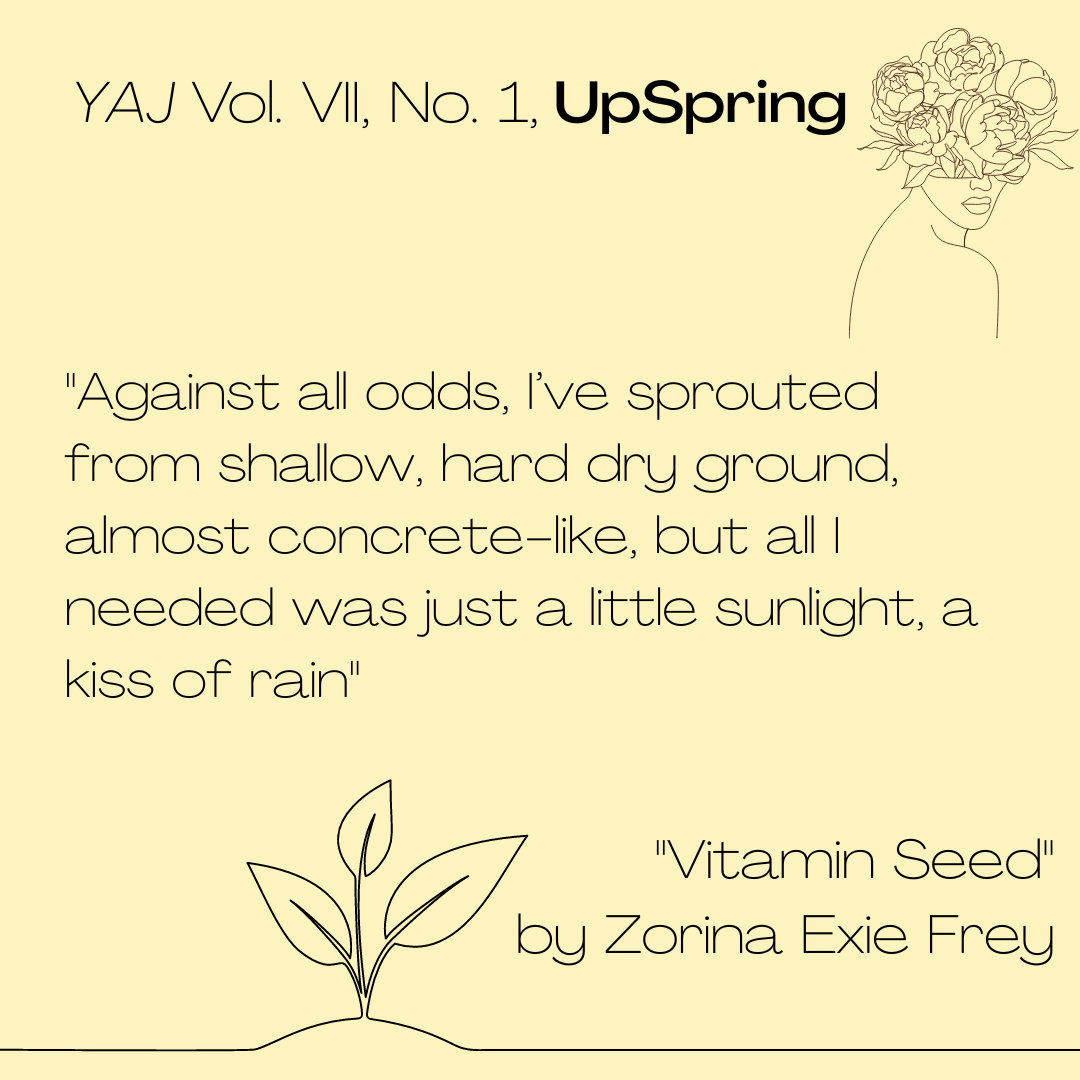
.WRITERS.ON.WRITING..Writers.on.Writing.
Get to know our authors, the foundation and heart of Yellow Arrow Journal, and what writing means to them through our monthly series.
W.o.W. #68
Elyse Welles
What is the first book that made you cry?
The Giving Tree by Shel Silverstein. I remember my teacher reading it aloud in elementary school and sobbing away at the unending love, the unconditional gifts the tree gave year after year . . . and it was the unappreciativeness of the boy-turned-man that made me cry. I remember looking around at the classmates I had and thinking, “Why isn’t everyone else sobbing?!”
How did you first publish your writing and what was it?
My very first published work as a working writer was an essay in Aayo Magazine about finding calm amidst political turmoil, something I come back to again and again in recent months. Fun fact, when I was in the 11th grade I had my Lembas bread recipe (Elvish bread from Lord of the Rings) published in a local cookbook in Bahrain where I was living at the time!
What word do you find yourself using most often in your writing?
Warmth.
What does your inner writing voice tell you?
I am guided: just stay focused.
Elyse Welles is a multicultural author and sacred poet. An initiated priestess holding an MA with a focus in spiritual studies, she is a teacher of the lost Earth priestess arts of the Mediterranean where she hails from. She hosts the Magick Kitchen Podcast, a top 20 show in the U.S., as well as the Seeking Numina Podcast and the Cosmic Theater Mystery School Podcast. She is an author, featured in several anthologies. Her first book, Sacred Wild: An Invitation to Connect with Spirits of the Land, releases with Llewellyn in fall 2025, and her paranormal mystery novel, What the Water Remembers, releases in September 2025. Elyse is currently writing her third book, a nonfiction work diving deeper into intentional, spiritual connection with nature. It builds on the themes introduced in Sacred Wild.
She writes regularly for Witchology and Witch Way Magazine and is the Greece correspondent for Wild Hunt. She has spoken at several conferences including Hekatefest and the Ancestral Magic Summit. She runs Seeking Numina, facilitating pilgrimages at Greece’s sacred sites, and teaches earth-based spirituality. Learn more about it at seekingnumina.com or find Elyse on Instagram @seekingnumina.
Yellow Arrow published her poems “Bougainvillea Bright” in Yellow Arrow Journal, Vol. VII, No. 1, UpSpring and “Zeitgeist” in Yellow Arrow Vignette SPARK.
.Writers.on.Writing.
Get to know our authors, the foundation and heart of Yellow Arrow Journal, and what writing means to them through our monthly series.
W.o.W. #53
Darah Schillinger
What word do you find yourself using most often in your writing?
I write about god a lot, even though I’m not particularly religious. I also know I write about nature in almost everything. If it’s not directly about nature it has natural imagery. I can’t escape it, and I don’t want to.
What period of your life do you find you write about most often?
Present day. I tend to write what I know, and it’s almost always what I’m feeling or inspired by in the very moment (though it’s probably because I’m young).
What is your writing Kryptonite? Your most interesting writing quirk?
I can’t force myself to write. If I have an assignment and I don’t have time to wait for inspiration, I will almost always pull from my notes app. That’s where all of my ideas, good and bad, are kept.
What does your inner writing voice tell you?
“Writing is what you’re good at, but don’t stress yourself out of creativity. When you’re ready to write, I’ll be there waiting.”
Darah Schillinger is a Baltimore, Maryland, poet working toward her professional writing degree at Towson University. She has previously published poetry in the St. Mary’s literary journal, AVATAR, on the Spillwords Press website, in the Maryland Bards Poetry Review 2022, in Yellow Arrow Journal, and in the first edition of Empyrean Magazine. Darah’s first poetry chapbook, when the daffodils die, was released in July 2022 by Yellow Arrow Publishing, and her first full-length collection is currently a work in progress.
Darah’s incredible poem, “i walk home at 10:03 pm,” was included in Yellow Arrow Journal’s issue UpSpring (Vol. VII, No. 1). And for the month of October only, you can purchase a copy of when the daffodils die from the Yellow Arrow bookstore for only $12.00. Let’s celebrate its 12-month anniversary together; get your copy today at yellowarrowpublishing.com/store/daffodils-die-paperback.
Learn more about Darah on Instagram @darahschillinger or @brokewritersociety and Facebook @darah.schillinger.
.Writers.on.Writing.
Get to know our authors, the foundation and heart of Yellow Arrow Journal, and what writing means to them through our monthly series.
W.o.W. #40
Rebecca Pelky
If you could have dinner with anyone, who would it be and why?
My grandmother, Mable Moon, who died before I was born, and who everyone says I most resemble, or maybe my great-grandfather, William Moon, who survived the Carlisle Indian Boarding School. Or maybe a grandmother from even further back, before boarding schools and missionaries stripped away so much of our traditional culture.
What does your inner writing voice tell you?
Lately it reminds me that I’m not only writing for myself, but also for my ancestors, who maybe didn’t have the chance to speak out like I do.
Describe an early experience where you learned that language has power.
When I was in Junior High (middle school in today’s lexicon), a (white, male) history teacher told my mom that I would never amount to anything because I came from a “broken home.” Those words did have power, but not in the way he might have expected. They only made me push harder to prove him wrong.
Rebecca Pelky holds a PhD from the University of Missouri, an MFA from Northern Michigan University, and is an assistant professor of Film Studies at Clarkson University. She is a member of the Brothertown Indian Nation of Wisconsin and a native of Michigan’s Upper Peninsula. Through a Red Place, her second poetry collection and winner of the 2021 Perugia Press Prize, was released in September 2021. Her first book, Horizon of the Dog Woman, was published by Saint Julian Press in 2020. Rebecca was one of Yellow Arrow’s ANFRACTUOUS poets with her incredible piece “Nuhpuhk’hqash Qushki Qipit (Braids)” and guest editor of Yellow Arrow Journal’s Vol. VII, No. 1 UpSpring.
Rebecca participated in “An Exploration of Belonging: The Anfractuous Reading” last year. You can hear her read her poem below and find the reading in its entirety on the Yellow Arrow YouTube channel.
You can also see Rebecca host the “Moments in Time: An UpSpring Reading” on YouTube. To learn more about Rebecca, you can find her on Instagram, Facebook, and Twitter, or visit rebeccapelky.com.
.Writers.on.Writing.
Get to know our authors, the foundation and heart of Yellow Arrow Journal, and what writing means to them through our monthly series.
W.o.W. #38
Zorina Exie Frey
What does your inner writing voice tell you?
Stop overthinking!
How did you first publish your writing and what was it?
I self-published my first book of poetry titled, I Won’t Apologize for Being a Woman (2006).
Describe your ‘normal’ writing environment.
I like writing in busy environments where there’s energy. A coffee house and my living room are where I crank out the good stuff.
Zorina Exie Frey is an essayist, screenwriter, and spoken-word poet working as a publishing content writer and digital designer. Her poem “Vitamin Seed” was included in Yellow Arrow Journal, Vol. VII, No. 1, UpSpring.
Find Zorina on Instagram, Facebook, and Twitter @zorinaexie or at her website zorinafrey.com.
.Writers.on.Writing.
Get to know our authors, the foundation and heart of Yellow Arrow Journal, and what writing means to them through our monthly series.
.W.o.W. #37
Kamella Bird-Romero
What does your inner writing voice tell you?
To never sell myself short. My writing muse is much more confident than regular me, and she carries far more potential than I am aware of. Writing is an out-of-body, almost spiritual practice. The places I visit, the worlds I create, are like dreams and reality meeting for tea.
As a writer, what would you choose as your mascot/avatar/spirit animal?
An otter! I adore how carefully otter mothers care for their young. They groom them and float with them as their protectors. I consider each poem, each story, like a child. I cannot choose a favorite, and I am fiercely protective. I am hesitant to ever say something is complete, because words are fluid and forever evolving.
Describe an early experience where you learned that language has power.
My father’s first language is Tewa, followed by Spanish, then thirdly English. He is called upon to speak for our family in times of prayer and gratitude. His words carry heavy sounds and meaning and there is nothing more comforting than listening to my father speak our Indigenous tongue.
My village greatly needs a collection of Indigenous language books for our youth. Tewa is slowly dying out and our children need resources to rekindle it. This is a project I plan to undertake.
Kamella is the first .W.o.W. featured author from Yellow Arrow Journal, Vol. VII, No. 1, UpSpring with her poem “short leather.” She was born in northern New Mexico in 1991 and resides on her Tewa ancestral lands in Ohkay Owingeh Pueblo with her three children.
She graduated in May 2022 from the Institute of American Indian Arts with her BFA in creative writing as a first-generation college graduate for her family.
She writes for her Tewa people and for the grandmothers before her.
Find her on Instagram @kamella_renee19.












